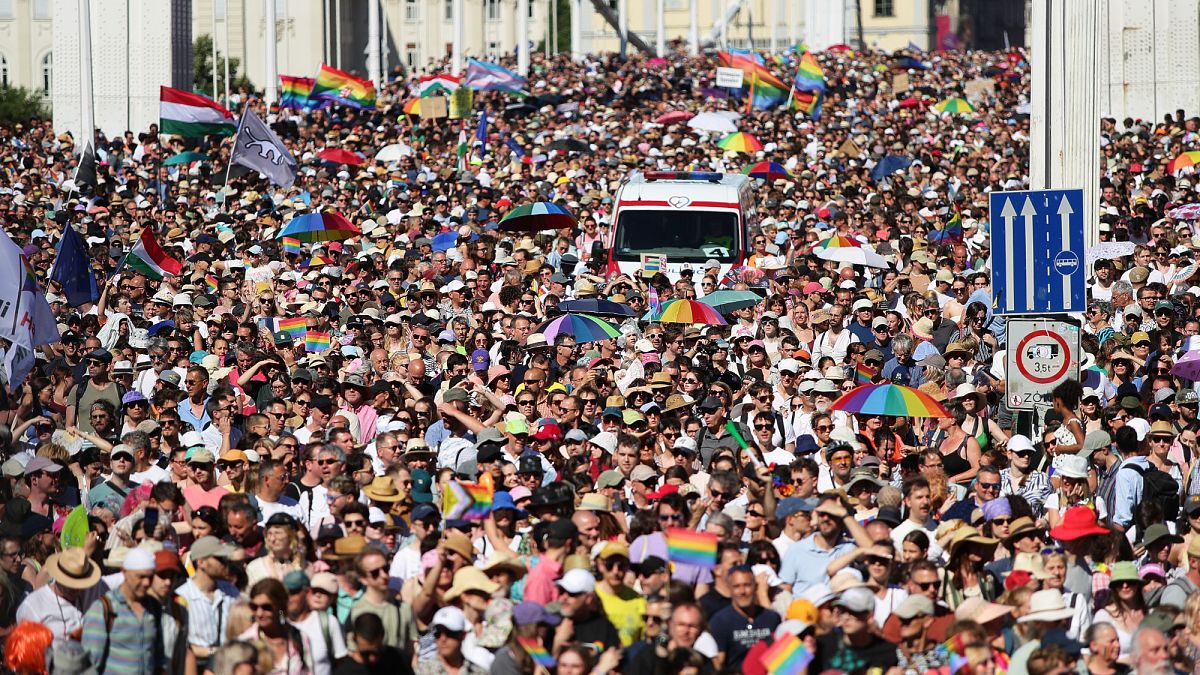

In a display of firm resolve and unity, around 100,000 individuals gathered in Budapest to participate in the city’s 30th Pride parade. This vibrant event took place despite a government-imposed ban from Prime Minister Viktor Orbán’s administration, which reflects ongoing challenges to LGBTQ+ rights in Hungary. The large turnout signifies a strong stand for equality and inclusion, demonstrating the power of community and solidarity in the face of opposition.
The parade, clad in lively colors and exuberant expressions of individuality, transformed Budapest’s streets into a canvas of resilience. Attendees, driven by a collective desire to celebrate diversity and advocate for LGBTQ+ rights, defied restrictive measures. This year’s Pride carried particular significance as it highlighted widespread discontent with policies perceived to suppress personal freedoms.
As the echoes of unity resonated from Budapest, a different narrative unfolded in the Middle East. In the West Bank, tension escalated when a group of Israeli settlers reportedly set fire to a military base, a move amid increasing incidents of violence in the region. The backdrop to this event was the tragic loss of life in the village of Karf Malik, where three Palestinians were killed following an assault by settlers. This incident accentuates the fragile nature of peace efforts and the urgent need for dialogue and resolution.
The intersection of these two narratives presents a rich tapestry of modern challenges. On one hand, the participants in Budapest uplifted a message of hope and inclusivity, navigating through adversity with protests that echoed worldwide. Conversely, the events in the West Bank serve as a somber reminder of the complexities that underpin longstanding geopolitical tensions.
Within the Hungarian context, political leaders from opposing parties sought to leverage the success of Budapest’s Pride turnout to further their political purposes. Some aimed to show support for the LGBTQ+ community, while others highlighted governmental overreach. Notably, Dutch right-wing politician Geert Wilders accused Budapest’s Mayor, Gergely Karácsony, of making an inappropriate gesture during the march. This claim was met with distribution of alternative footage disputing the accusation, reflecting the often contentious and multifaceted nature of political discourse.
Despite the varying agendas and interpretations, the core message of Budapest Pride remains clear. It represents a unifying force for equality amid societal division. The tenacity of parade-goers underscores the importance of standing together against discrimination and advocating for broad-based acceptance.
As we reflect on these events in different parts of the world, it’s important to acknowledge the underlying human stories and struggles that frequently drive movements. Whether advocating for rights on the streets of Budapest or seeking peace across divided lands, these endeavors are woven together by a common thread of striving for a better, more inclusive future.
In such times, the need for calm, thoughtful dialogue and mindful understanding is more crucial than ever. Through empathetic exchanges and grassroots advocacy, hope remains that societal change will be accompanied by lasting peace and mutual respect across borders.
Source: {link}
